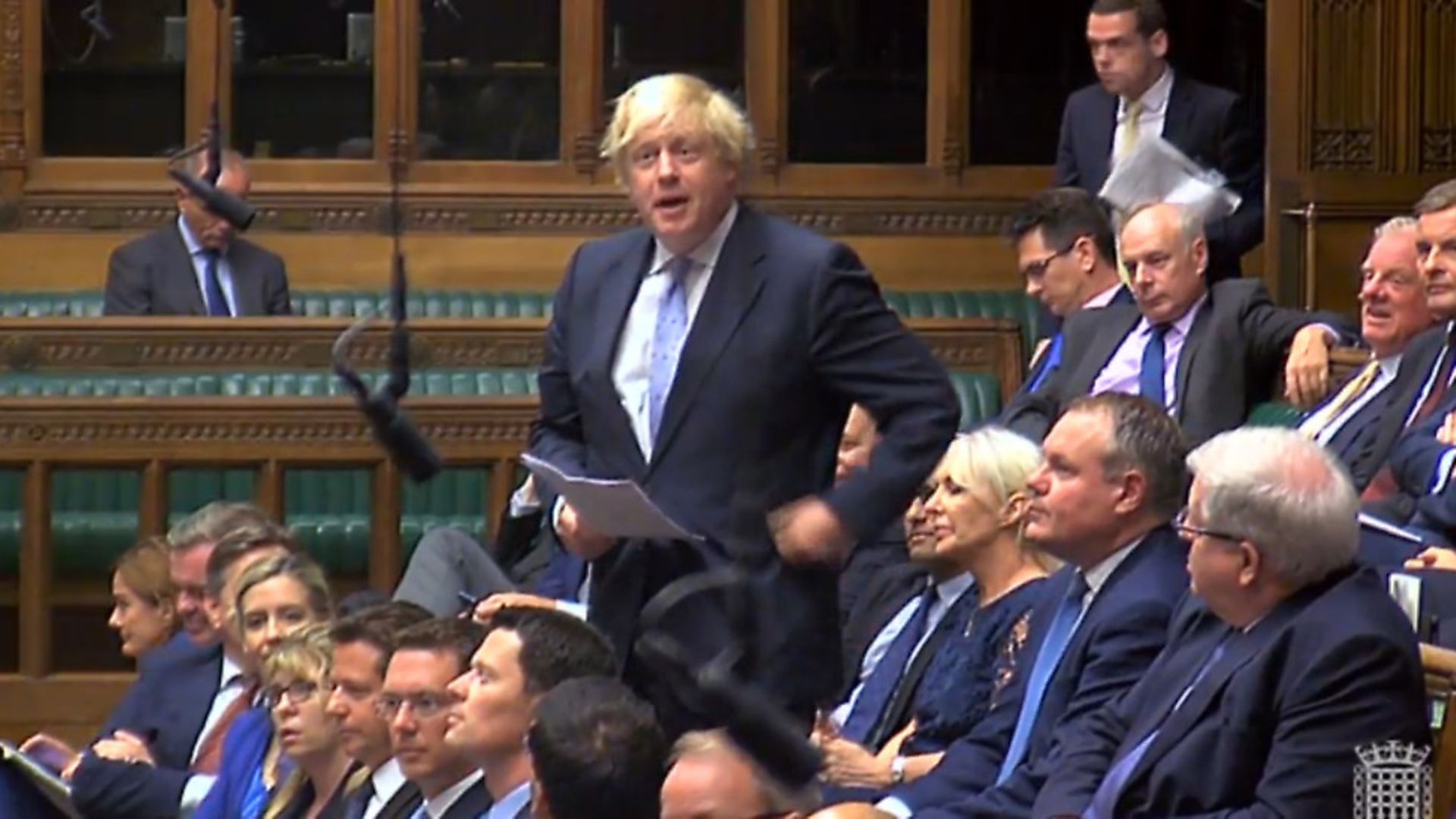
The Conservative party is teetering on civil war over Theresa May’s Chequers plan.
Boris Johnson is leading the bid to scrap the plan and reportedly being advised by election guru Sir Lynton Crosby.
And it is not just Brexiteers that hate it.
So, what exactly is the proposal?
• A new free trade area in goods – including food products – with a ‘common rulebook’ of standards and regulations necessary for frictionless movements across borders
• A ‘facilitated customs arrangement’, removing the need for checks and controls between Britain and the EU and allowing differing UK and EU tariffs on imports from elsewhere in the world to be paid at the border
• Freedom for the UK to develop its own regulations for services, while accepting it will no longer enjoy ‘current levels of access’ to EU markets
• An independent arbitration panel to decide on disputes, able to seek guidance from the European Court of Justice on the interpretation of EU law
• Continued UK participation in and payments to European agencies covering areas like chemicals, aviation and medicines
• A common rulebook on state aid and commitments to maintain high standards of environmental and workplace protections
• Mobility rules to end automatic freedom of movement, but allow UK and EU citizens to travel without visas for tourism and temporary work
• A security deal allowing continued UK participation in Europol and Eurojust, co-ordination on foreign affairs, defence and development and co-operation in areas like cyber-warfare and counter-terrorism
• Co-operation on personal data protection, continued use of the EHIC health insurance card and accords on shared programmes in science, culture, education and space
• Annual negotiations on access to fishing waters and the sharing of fish stocks
What criticisms have there been?
• Boris Johnson was backed by many Brexiteers when he condemned the deal as a ‘disaster’. He argues that adopting a common rulebook will prevent the UK from striking major trade deals with countries outside the EU
• Many Eurosceptics also oppose any role for the ECJ in the future and fear that proposed mobility rules would prevent any significant drive to reduce immigration from the EU
• In Brussels, there are concerns that Chequers would undermine the EU. Chief negotiator Michel Barnier said it would destroy the single market and the European project by allowing the UK to ‘cherry-pick’ rules and regulations. Proposals to track the end-destination of imports would involve ‘insane and unjustifiable bureaucracy’, while it would prove impossible to separate out the elements of ‘goods’ and ‘services’ provided with products like mobile phones, he said
• Some EU-supporting Conservatives fear that the Chequers deal represents a waste of time and effort, as they believe it is certain to be rejected in both Brussels and Westminster. Former minister Justine Greening described it as ‘more unpopular than the poll tax’, while Nick Boles said the prime minister should ‘park’ the UK in Norway-style membership of the European Economic Area until a free trade agreement can be negotiated
• Labour has dismissed Chequers as an unworkable and bureaucratic ‘fudge’ which does not meet its call for a new comprehensive customs union with the EU and full access to the single market to allow trade to thrive
• Supporters of a second referendum such as the Best for Britain group argue that May’s deal fails to deliver the benefits of the UK’s current EU membership, while risking a harmful no-deal Brexit
Warning: Illegal string offset 'link_id' in /mnt/storage/stage/www/wp-includes/bookmark.php on line 357
Notice: Trying to get property 'link_id' of non-object in /mnt/storage/stage/www/wp-includes/bookmark.php on line 37






